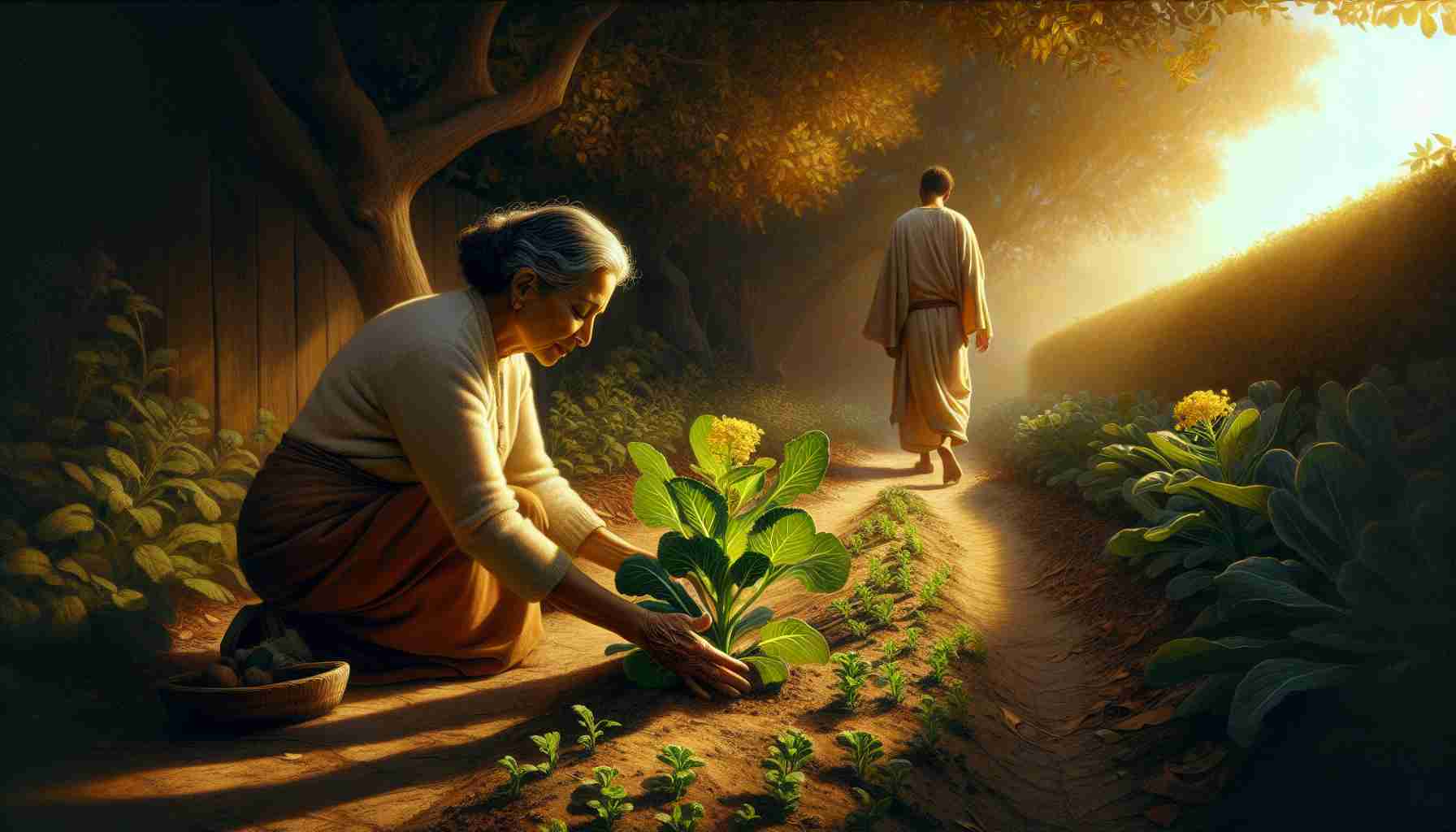

The dust from the Galilean road clung to Eli’s sandals as he crouched beneath the shade of an olive tree, arms wrapped around his knees. He glanced down the hill at the Roman outpost near Capernaum, its banners flapping in the hot wind. Every olive he picked fed their greed, not his family's hunger. His uncle said that was just how things were now—that the kingdom of God was a dream for the dead, not for a crippled youth with no voice at synagogue and no trade to offer.
Eli massaged his right leg, stiffer each season since the fever years ago, his calf withered, tendons like ropes beneath parchment skin. He tried to believe when others spoke of deliverance, of Abraham’s God and the ancient king who would rise again. But how could a kingdom come when all Eli could build was a rabbit trap from broken twine?
A crowd buzzed on the other side of the incline, just out of sight. He heard words float on the wind—"Jesus of Nazareth"—and something in the murmuring tone made Eli straighten. He rocked forward, wincing at the ache, dragging his bad leg as he limped up the slope.
When he crested the hill, he saw Him.
Not like the zealots Eli had imagined the Messiah to be—no sword, no soldiers. The man was seated, surrounded by women, tradesmen, even children, all leaning in with eyes wide. His voice was gentle but firm, cutting through the noise: “The kingdom of heaven is like a mustard seed. The smallest of all seeds... yet when it’s grown, it becomes the greatest of shrubs...” He spread his hands wide, as if cradling a tree tall enough to shade the world.
Eli stood at the back, invisible in the crowd. But Jesus paused, turning His face toward him. Their eyes met.
He sees me.
Jesus rose and walked directly toward him. The others parted, whispering. Eli’s breath caught. He wanted to shrink away, but Jesus stopped a pace in front of him.
“What’s your name?” the teacher asked.
“E-Eli,” he stammered.
Jesus looked at the twisted leg, then back into his eyes.
“You believe small can’t matter,” He said. “But the kingdom works in hidden ways. It starts in places others ignore.” He reached out, touching Eli’s chest gently with His fingertips.
In that second, something stirred. Not in his leg—but deeper. Like a thread pulled tight inside him had been loosened. Not healed, not glorified—but seen. Chosen.
Eli’s vision blurred with sudden tears.
Jesus left with the crowd, yet Eli didn’t move for a long time.
When at last he turned, the sun was slanting low over the hills. He looked at his hands—dirty, empty. But for the first time, they didn’t feel useless.
He limped back toward the village, not faster, but different. Tomorrow, he would repair his father’s broken cart. The next day, maybe teach young Levi how to fish. Not everything had to be big to matter.
Even mustard seeds grow.
The dust from the Galilean road clung to Eli’s sandals as he crouched beneath the shade of an olive tree, arms wrapped around his knees. He glanced down the hill at the Roman outpost near Capernaum, its banners flapping in the hot wind. Every olive he picked fed their greed, not his family's hunger. His uncle said that was just how things were now—that the kingdom of God was a dream for the dead, not for a crippled youth with no voice at synagogue and no trade to offer.
Eli massaged his right leg, stiffer each season since the fever years ago, his calf withered, tendons like ropes beneath parchment skin. He tried to believe when others spoke of deliverance, of Abraham’s God and the ancient king who would rise again. But how could a kingdom come when all Eli could build was a rabbit trap from broken twine?
A crowd buzzed on the other side of the incline, just out of sight. He heard words float on the wind—"Jesus of Nazareth"—and something in the murmuring tone made Eli straighten. He rocked forward, wincing at the ache, dragging his bad leg as he limped up the slope.
When he crested the hill, he saw Him.
Not like the zealots Eli had imagined the Messiah to be—no sword, no soldiers. The man was seated, surrounded by women, tradesmen, even children, all leaning in with eyes wide. His voice was gentle but firm, cutting through the noise: “The kingdom of heaven is like a mustard seed. The smallest of all seeds... yet when it’s grown, it becomes the greatest of shrubs...” He spread his hands wide, as if cradling a tree tall enough to shade the world.
Eli stood at the back, invisible in the crowd. But Jesus paused, turning His face toward him. Their eyes met.
He sees me.
Jesus rose and walked directly toward him. The others parted, whispering. Eli’s breath caught. He wanted to shrink away, but Jesus stopped a pace in front of him.
“What’s your name?” the teacher asked.
“E-Eli,” he stammered.
Jesus looked at the twisted leg, then back into his eyes.
“You believe small can’t matter,” He said. “But the kingdom works in hidden ways. It starts in places others ignore.” He reached out, touching Eli’s chest gently with His fingertips.
In that second, something stirred. Not in his leg—but deeper. Like a thread pulled tight inside him had been loosened. Not healed, not glorified—but seen. Chosen.
Eli’s vision blurred with sudden tears.
Jesus left with the crowd, yet Eli didn’t move for a long time.
When at last he turned, the sun was slanting low over the hills. He looked at his hands—dirty, empty. But for the first time, they didn’t feel useless.
He limped back toward the village, not faster, but different. Tomorrow, he would repair his father’s broken cart. The next day, maybe teach young Levi how to fish. Not everything had to be big to matter.
Even mustard seeds grow.